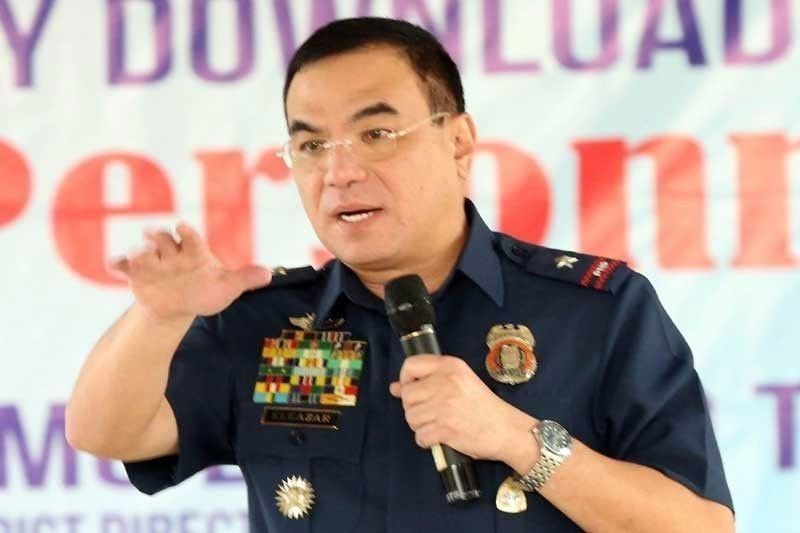PNP braces for GCQ

MANILA, Philippines — Police forces are bracing for more challenges in maintaining peace and order once Metro Manila and other areas transition to a less stringent modified general community quarantine (GCQ).
Lt. Gen. Guillermo Eleazar, Philippine National Police (PNP) deputy chief for operations, yesterday said they adjusted their security coverage when commercial establishments in Metro Manila reopened under a modified enhanced community quarantine (MECQ).
Aside from Metro Manila, other areas under MECQ are Cebu City and Laguna.
The PNP expects the situation to further change under a GCQ where more businesses are allowed to operate.
In an interview with dzBB, Eleazar said easing into a GCQ means further reopening the economy and reviving livelihoods, but “we know that this will be more challenging.”
Eleazar admitted that the PNP had an easier time securing Metro Manila and other parts of Luzon under ECQ, but they have to make adjustments during an MECQ.
This includes shifting to modified checkpoints where not all vehicles are checked to avoid slowing traffic.
Eleazar said crimes might also increase under GCQ as more people will be allowed outside their homes.
“It’s possible for (crime) to increase. What we’re after, comparing non-ECQ time to now, is to maintain the low (incidence of crime),” he added.
The crime volume in the country dipped by 60 percent during the community quarantine from 10,398 crimes from Jan. 9 to March 16, compared to 4,126 cases from March 17 to May 23.
Faster, more efficient
Interior Secretary Eduardo Año has claimed that there has been faster and more efficient government response to the coronavirus disease 2019 (COVID-19) pandemic under the more lenient community quarantine currently being imposed over the country.
Año said the national government is seeing better effects by implementing targeted and localized lockdown on critical areas, instead of grounding whole cities and provinces.
“Now, we are seeing it’s easier to respond when there is a so-called outbreak because we are doing localized lockdowns. So it’s easy to focus resources and we see that it is effective,” he said in Filipino in an interview on CNN.
The head of the Department of the Interior and Local Government (DILG) said the modified enhanced community quarantine and the general community quarantine are helping reopen businesses and the economy amid the COVID-19 pandemic.
Under localized implementation, lockdowns would only be imposed on critical zones and containment zones in barangays, sitios, or subdivisions.
Año said the government is eyeing to implement localized lockdown in more areas by next month.
Central Luzon could already be shifted into a modified general community quarantine along with the rest of the country, aside from a few areas like Cebu and Metro Manila.
Under the MGCQ, other industries could resume operations, such as the entertainment industry, but they would still have to adhere to minimum health standards.
Last week, Carlito Galvez, chief implementer of the National Task Force on COVID-19, claimed that the government is winning the war against the pandemic.
Enforce mall safety protocols
Health and safety protocols against COVID-19 are to be enforced even after the lifting of quarantine in all areas nationwide, according to the Department of Trade and Industry (DTI).
DTI Undersecretary Ruth Castelo said both mall owners and mall goers must abide by physical distancing and other health protocols for the next two years or until a vaccine for COVID-19 becomes available.
“We cannot afford to relax, probably for the next two or three years. We have to practice strict protocol, we have to accept and adapt these as a way of life,” Castelo said during a Department of Health (DOH) media forum.
Health Undersecretary Maria Rosario Vergeire said minimum public health standards must be enforced in malls and other public places at all times to prevent the possible transmission of COVID-19.
“Minimum public health standard should be implemented until we can safely say, based on evidence, that we are all safe from the virus,” Vergeire stressed.
Vergeire said every individual has the responsibility to observe the necessary protocol not only for their own protection, but for the safety of other people as well.
Castelo said the DTI has come out with the guidelines, which mall owners and malls goers have to comply with such as wearing of masks and physical distancing.
Under the guidelines, Castelo said mall sales and other events that would attract large crowds are prohibited.
She said mall owners have been asked to provide a bigger space for motorcyle riders who pick up goods for delivery to different households.
“Even motorcycle riders should observe physical distancing,” Castelo said while noting that DTI is encouraging mall owners to find other measures to avoid possible transmission of the virus.
Malls operators have assured the DTI and DOH that health and safety measures are already being strictly implemented for the protection of mall goers, and that additional measures will be placed in preparation for the lifting of the general community quarantine. Romina Cabrera, Mayen Jaymalin
- Latest
- Trending




























